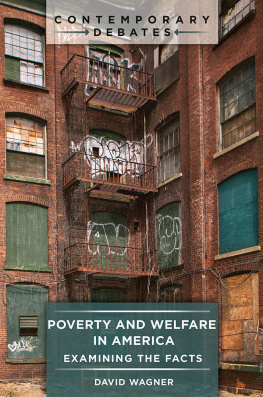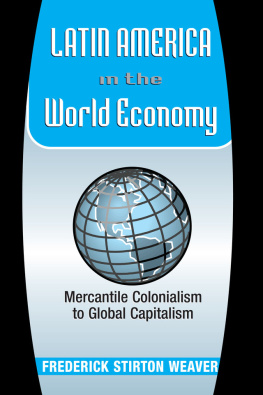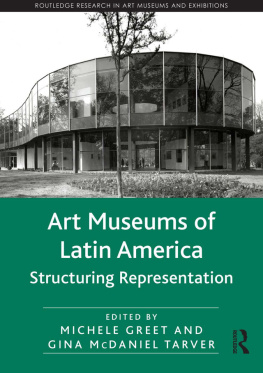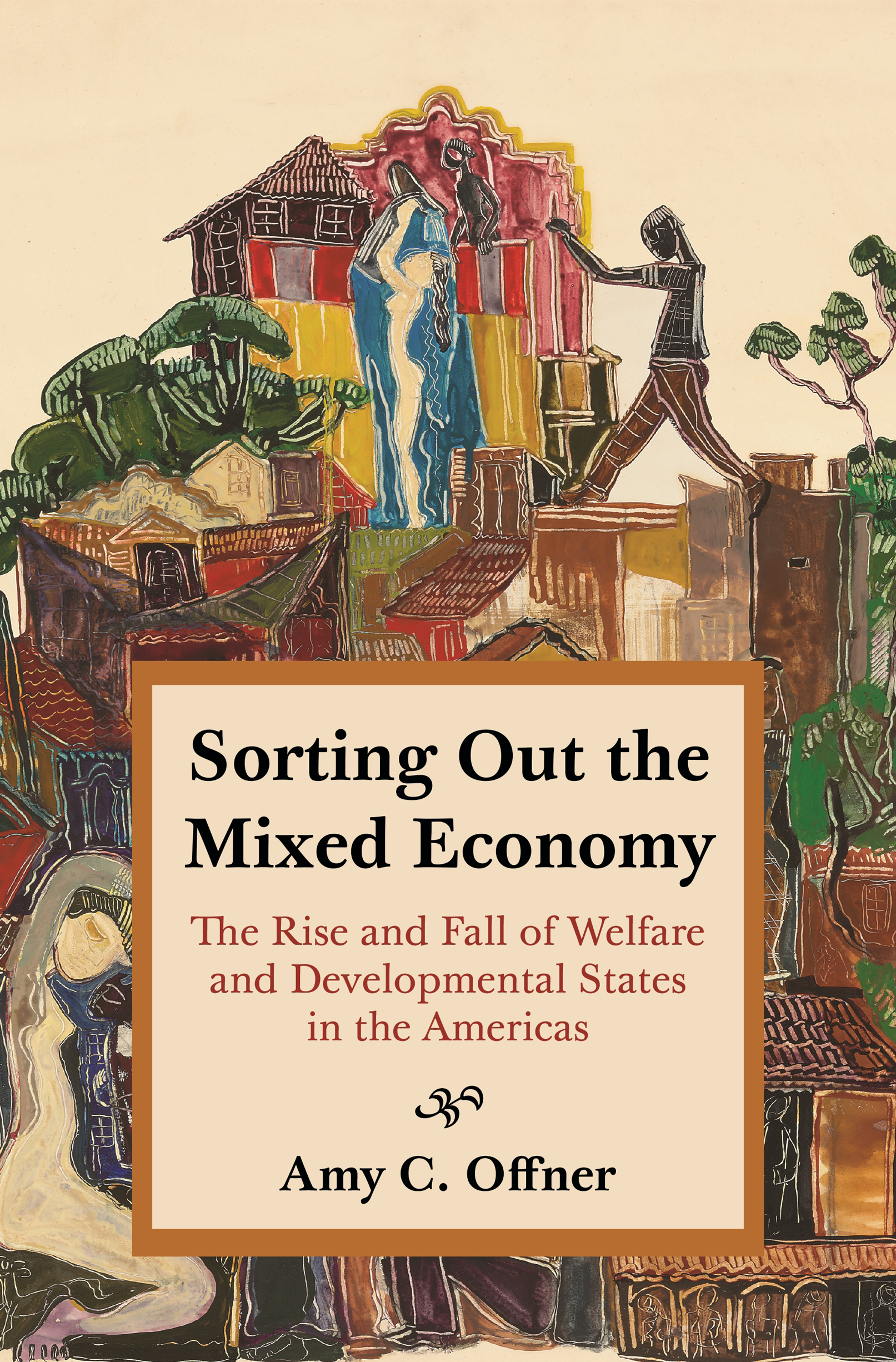ACKNOWLEDGMENTS
MY FIRST THANKS go to Eric Foner. Very few people would respond positively to a students idea to change her region of study halfway through a doctoral program and drop out of school to remediate herself in another country. He did. His level-headed management of bizarre circumstances, wide-ranging interests, elegant writing, and unshakable commitment to his students are models to me. John Coatsworth and Anders Stephanson changed my path as a historian, leading me into the study of Latin America, US foreign policy, and economic thought. At every stage along the way, Elizabeth Blackmar has been a peerless model of intellectual creativity and a guiding intellectual influence, helping me relate my curiosities and commitments to worthwhile questions about capitalist development, ideology, and the social production of space. This books genesis owed, finally, to imaginative questions and criticism I received from Matthew Connelly, Timothy Mitchell, Sanjay Reddy, Herb Sloan, and the late Fritz Stern.
I am grateful to many colleagues who read and commented on the manuscript. David Engerman, Ann Farnsworth-Alvear, Sarah Barringer Gordon, Marco Palacios, and Kathy Peiss read the entire book or very nearly all of it, in some cases more than once. Many others critiqued individual chapters, commented on conference papers, and discussed the books animating ideas with me. I thank Michele Alacevich, Andrs lvarez, Leandro Benmergui, Chris Capozzola, Ben Coates, Chris Dietrich, Kate Epstein, Ansley Erickson, Arturo Escobar, Yvonne Fabella, Karen Ferguson, Andrew Friedman, Alyosha Goldstein, Adam Goodman, Richard Harris, Mark Healey, Rebecca Herman, Jimena Hurtado, Louis Hyman, Richard Immerman, Daniel Immerwahr, Rob Karl, Jennifer Klein, Paul Kramer, Nancy Kwak, Catherine LeGrand, Ricardo Lpez, Casey Lurtz, Stephen Macekura, Andrew Needham, Alice OConnor, Tore Olsson, Julia Ott, Kim Phillips-Fein, Mariano Plotkin, Daniel Rodgers, Mary Roldn, Susana Romero Snchez, Eduardo Senz Rovner, Roger Sandilands, Andrew Sandoval-Strausz, Brad Simpson, the late Judith Stein, David Suisman, Rebecca Tally, Julia Adeney Thomas, Lorrin Thomas, Christy Thornton, Alejandro Velasco, Bob Vitalis, Barbara Weinstein, Alden Young, the late Marilyn Young, and Andrew Zimmerman.
Two intellectual communities deserve special mention. First, a remarkable number of my colleagues at the University of Pennsylvania, past and present, discussed this work with me, and everyone offered moral and practical support along the way. In addition to those mentioned above, I particularly thank Eiichiro Azuma, Mia Bay, Lee Cassanelli, Brent Cebul, Alex Chase-Levenson, Antonio Feros, Steve Hahn, Peter Holquist, the late Michael Katz, Ada Kuskowski, Sophia Lee, Walter Licht, Stephanie McCurry, Ben Nathans, Marcy Norton, Vanessa Ogle, Dan Raff, Sophie Rosenfeld, Tom Sugrue, Melissa Teixeira, Heidi Voskuhl, Tamara Walker, and Beth Wenger. Beyond my own university, I owe a debt of gratitude to colleagues at the Charles Warren Center for American History, where I drafted a significant portion of this book. Kirsten Weld and Brandon Terry led a brilliant workshop, and I learned much from my fellow fellows: Megan Black, Nick Bromell, Chris Clements, Kendra Field, Jeff Gonda, Jeff Gould, Forrest Hylton, Destin Jenkins, Carlota McAllister, Stuart Schrader, Nina Silber, and Shatema Threadcraft.
At Princeton University Press, I have been lucky to work with wonderful people. Jeremy Adelman took an interest in this book when it was still taking shape. He helped me think through questions large and small, saved me from bad writing, and communicated a genuine enthusiasm for new work that I will not forget. Eric Crahan, Thalia Leaf, and Amanda Peery guided me through the publication process with enormous professionalism and patience. Bob Bettendorf, Leslie Grundfest, Dawn Hall, Chris Lapinski, Layla Mac Rory, and Pamela Weidman kept me on schedule, caught errors in the manuscript, wrote jacket text, and designed the cover. Shane Kelley created the books maps.
A portion of , in an earlier version, appeared in Making Cities Global: The Transnational Turn in Urban History, ed. A. K. Sandoval-Strausz and Nancy H. Kwak (Philadelphia: University of Pennsylvania Press, 2018). I am grateful to Bob Lockhart and Peter Agree of Penn Press for their work on that volume, as well as the support and generosity they have shown me during my time at Penn.
This project depended on the work of many archivists, librarians, and university and public officials who helped me access historical documents. I thank Donald Davis of the American Friends Service Committee; Mauricio Tovar, Fabio Castro, and the staff of the Archivo General de la Nacin; Rodrigo Torres of the Corporacin Autnoma Regional del Valle del Cauca; Valoise Armstrong of the Eisenhower Library; Lucas Clawson, Roger Horowitz, and Lynsey Sczechowicz of the Hagley Library; Stephen Plotkin of the Kennedy Library; Daniel Linke of Princeton Universitys Mudd Library; Bethany Antos and Thomas E. Rosenbaum of the Rockefeller Archive Center; Emilsen Quimbayo of the Universidad de los Andes; Jos Alberto Giraldo Lpez and the archival staff of the Universidad del Valle; Gabriel Escalante Guzmn of the Universidad Nacional de Colombia; David Null, Beverly Phillips, and Kurt Brown of the University of Wisconsin; Bertha Wilson and Marlene Justsen of the World Bank; and the staffs of the Archivo de Bogot, Baker Library, Bancroft Library, Biblioteca Luis Angel Arango, California State Archives, Carter Library, Columbia University Rare Book and Manuscript Library, Rubenstein Library at Duke University, Hoover Institution, National Archives in College Park and Washington, DC, Tamiment Library, Tufts University Archives, Archivo Institucional of the Universidad de los Andes, and Instituto Colombiano de Desarrollo Rural. I thank Adriana Rivera Pez and Fanny de Rivera for granting access to the papers of Jorge Enrique Rivera Farfn and Jorge Alberto Rivera Pez, and Stephen Wyckoff for granting access to the Florence Richardson Wyckoff papers.







